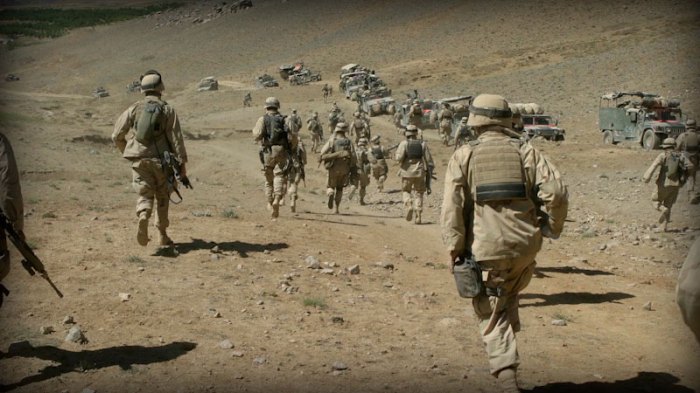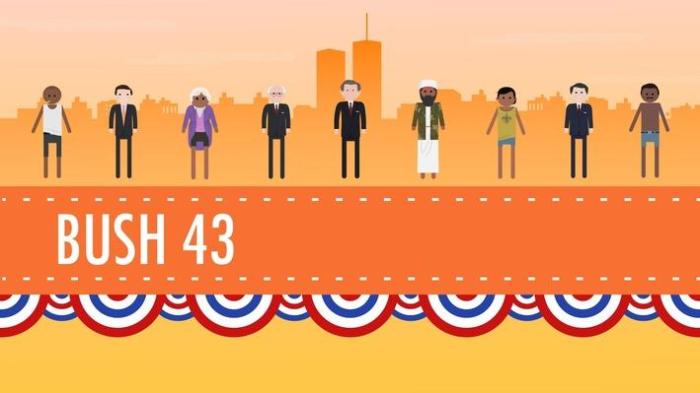Embark on an in-depth exploration of the “Terrorism War and Bush Crash Course Transcript.” This discourse will delve into the historical backdrop, key policies, global repercussions, and lasting legacy of this pivotal chapter in world history.
The aftermath of the 9/11 attacks ignited a global conflict against terrorism, shaping the political landscape and international relations for years to come. Join us as we dissect the complexities of this multifaceted subject.
Historical Context of the “War on Terror”: Terrorism War And Bush Crash Course Transcript

Following the September 11th attacks, the United States declared the “War on Terror,” a global campaign against terrorism. The attacks sparked widespread fear and outrage, leading to a significant shift in the nation’s political and social climate.
The Bush administration defined the “War on Terror” as a comprehensive effort to prevent future terrorist attacks and dismantle terrorist organizations. Its primary goals included dismantling al-Qaeda, preventing further attacks, and promoting democracy in the Middle East.
Key Policies and Actions of the “War on Terror”
The Bush administration implemented a range of policies and actions in the name of the “War on Terror.” These included:
- Creation of the Department of Homeland Security to coordinate domestic security efforts.
- Passage of the Patriot Act, expanding government surveillance and detention powers.
- Invasion of Afghanistan to topple the Taliban regime, which had harbored al-Qaeda.
- Invasion of Iraq to remove Saddam Hussein from power and prevent him from developing weapons of mass destruction.
Impact of the “War on Terror” on Civil Liberties
The “War on Terror” had a significant impact on civil liberties in the United States. The government expanded its surveillance capabilities, detained suspects without trial, and employed enhanced interrogation techniques.
These measures raised concerns about the balance between security and civil liberties. Critics argued that the government’s actions infringed on fundamental rights and freedoms.
Global Impact of the “War on Terror”
The “War on Terror” had a profound global impact. Counterterrorism measures spread to other countries, leading to increased surveillance and human rights abuses.
The rise of terrorist groups, such as ISIS, was also influenced by the “War on Terror.” These groups exploited the instability and resentment created by the conflict to recruit new members.
Legacy of the “War on Terror”, Terrorism war and bush crash course transcript
The “War on Terror” has had a lasting impact on the United States and the world. It has shaped the nation’s security policies, civil liberties landscape, and global relationships.
The long-term effectiveness of the “War on Terror” is still debated. Some argue that it has successfully prevented future terrorist attacks, while others believe it has created new threats and eroded civil liberties.
Top FAQs
What were the primary goals of the “War on Terror”?
The Bush administration’s primary goals included dismantling terrorist networks, preventing future attacks, and promoting democracy and stability in the Middle East.
How did the “War on Terror” impact civil liberties in the United States?
The “War on Terror” led to increased surveillance, detention without trial, and enhanced interrogation techniques, raising concerns about the balance between security and civil liberties.
What were the major criticisms of the “War on Terror”?
Critics argued that the “War on Terror” was counterproductive, leading to increased instability and human rights violations, and that it was based on fear-mongering and Islamophobia.

